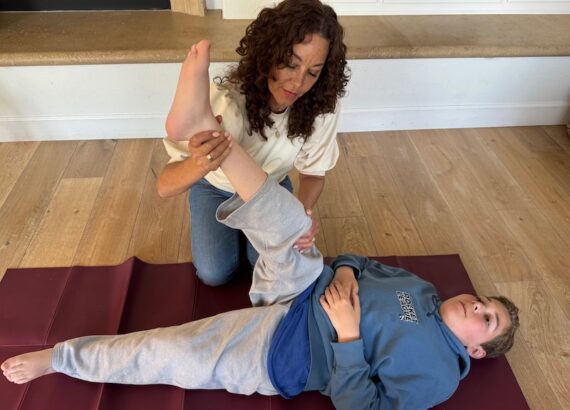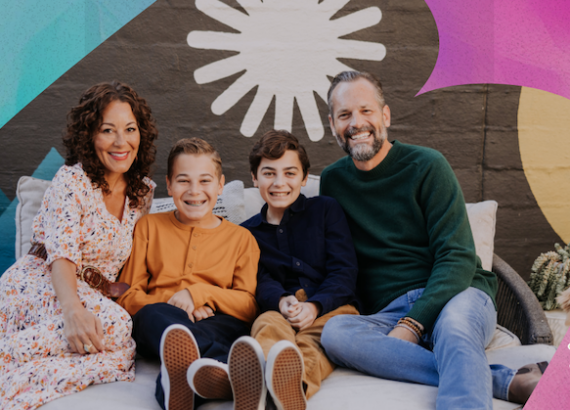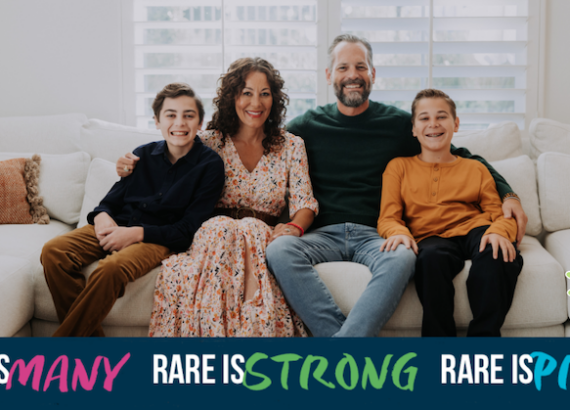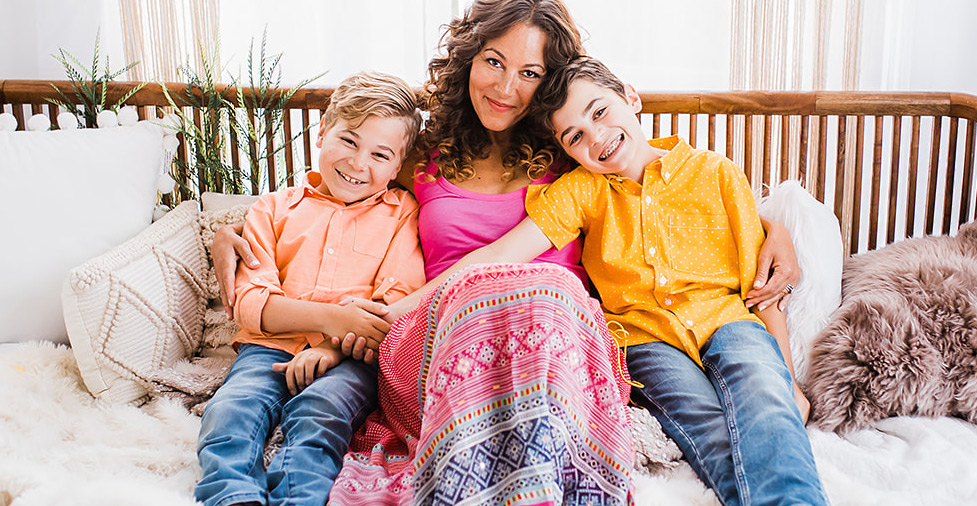Trusting Your Parenting Instincts

Trusting your parenting instincts is such a vital part of the rare-disease parenting journey but it doesn’t happen overnight. It takes hard work, confidence, and a lot of following your intuition. But, I wholeheartedly believe that over time every rare-disease parent can find their path to being able to trust their parenting instincts. Let’s dive into how…
I’ve had so many well-meaning experts tell me things that, by all facts and statistics, were true. The evidence, research, and past findings all showed it to be true. But I’ve learned there are always exceptions. I’ve watched my child be an exception. It was my job to decipher the information and decide what to do with it, it was my job to discern what I was going to believe and what I was not, it was my job to decide what I was going to accept and what I was going to question, and it was my job to decide how to live with realities and hope at the same time.
I have had a pediatrician tell me that my son was fine and that nothing was wrong. I have had a physical therapist tell me that I needed to accept my son’s limitations and the bleakness of the future. I have had a geneticist tell me that it was inevitable that my child’s disease would worsen. Each of these went against my parenting instincts and if I simply believed what was said and took it at face value, my son and our entire family would be in a very different place right now.
So if something doesn’t feel right, question it. If something doesn’t sound true, challenge it. Seek out answers, second opinions, specialists, and experts, because there are different ways to approach things. Science is changing all the time, and what once didn’t exist may become commonplace in the future. You have to keep seeking information and answers, and you have to trust your parenting instincts. These same instincts probably gave you inklings that something was going on with your child in the first place. Keep following those as you make your way through this. Around every corner, as your child changes, and as your circumstances change, follow those parenting instincts. You know your child better than anyone else.
You are the expert.
Yeah, I know you’re laughing now, but one day you’ll say, “Yep, that’s right, I am!” I am the expert of Miles. You are the expert of ____ (insert your child’s name). I’m sure one day Miles will grow up and tell me that I am not the expert of him, but for now, I get to be the expert of something, and I’m going to revel in that for as long as I can.
Around every corner, as your child changes, and as your circumstances change, follow those parenting instincts. You know your child better than anyone else.
Miles’ diagnosis came with an entire team of doctors, therapists, equipment specialists, counselors, school aides, educators, etc. Perhaps your child’s diagnosis also comes with many different specialists and therapists. Someone will need to manage all those providers and that someone is you. Sound like a big job? Yes, it is at first, but then you’ll find yourself naturally doing it; and there you have it, soon you will be the holder of the information.
Since information is power, having all the information and sharing it between the different providers will make you the expert on your child. You’ll become a nurse, a counselor, a PA, a PT, an OT, an orthotist, a psychologist, etc. You learn about whatever you need to learn about to take care of your kid. But doesn’t every mom anyway? It’s just what moms do.
You know what else? You don’t have ordinary instincts inside you. You have mama instincts, and you just need to believe in yourself enough to trust them, follow them, and pursue them. Leave no stone unturned and rest only when you know that you’ve looked at something from all angles and considered all opinions and possibilities.
Roar, mama, roar! Don’t be afraid to ask questions. Don’t be afraid to disagree. Don’t be afraid to wake up the whole wide jungle if you have to!
What’s the worst that can happen? Let’s say you do all this and you land back where you started. But the doing of all of this will allow you to feel you’ve uncovered all there is to know. At the very least, you will have peace of mind. And peace of mind is golden right now. It will give you comfort during uncertain times.
Another thing that may be helpful to know is that when you’re dealing with a rare diagnosis, it can be common to receive conflicting information. Your child may see one specialist who tells you one thing and another specialist who tells you another. This leaves us parents in a very uncomfortable predicament. Often, we trust our healthcare providers to be the final word on which path we should take. We rely on them to help us discern which treatment options, medications, procedures, and interventions to pursue. But when you receive conflicting information, the decisions are put back on you as parents as to which route to choose. This is where you’re going to have to trust some of those parenting instincts to guide you. Again, you know your child best. Use the information you’ve gathered about your child to guide your decision.
Seek out as much information as possible to make the best decision you can at the time. Gather the information from all the specialists, and then knowing what only you can know about your child, use that to make your decision. Ultimately, I do believe that you as a parent know more than you think you do when it comes to your child. Use that knowledge and your instincts to guide you on your path.
Also, because we are dealing with a rare disease, it can be common to have unclear paths. Often, there are no set protocols or best care practices in place. This can leave us with uncertainties. Once again, after you’ve done all the research, seen all the specialists, talked to other parents, and filled yourself with information, it will be up to you as the parent to make the ultimate decision. It will be time to lean into those parenting instincts.
With Miles, I have run up against many “firsts.” As new treatments and procedures were initiated with his disease, we had to make decisions that were not yet tried and true. New practices of care were evolving, and we didn’t have years of evidence that afforded us the comfort of known outcomes. This felt scary and unsettling. But we wanted our child to benefit from treatments that had the potential to keep his disease at bay. The benefits outweighed the risks. So we had to take steps forward based on the information we had at the time. This is part of rare disease. We swim in a lot of unknown waters. We are faced time and time again with making decisions without years of hard data to call upon.
A wise physical therapist once told me, as I agonized over a tough medical decision for my son, “Nikki, all you can do is make the best decision you can for right now.” She was right. One day I may look back and question myself, but at that moment, I couldn’t see the future and all I could do was go with the best information I had at the time and make the best-educated decision I could. Sometimes that’s all you can do.

Mama, I want to encourage you to rise to this task. Instead of shirking in fear from these decisions, lean into your parenting instincts. Trust yourself. Believe that since you have done the work and have gathered all the information you possibly could, you are informed to make the best decision you can, with the information you have at the time. Trust that since you know your child the best, you are the one who should have the final say in how to proceed. There are more answers inside you than you’re giving yourself credit for. Learn to hear that voice inside giving you direction, and use it as a guiding light. This is often the best advice that seasoned rare mamas give to newbie rare mamas. See some of that best advice here.
Trust your parenting instincts. Believe in yourself. You are capable. You are your child’s mother. There is no greater authority than that. You were beautifully and wonderfully made specifically and exactly for mothering your unique child. No one else but you can do what you do.
I already know you will do it well.








